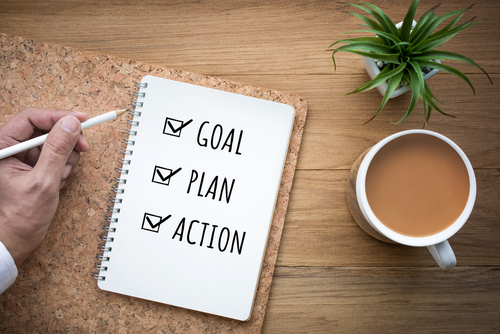Resource Library
Start Reading

How is your dental hygiene this year? Are you satisfied with the state of your oral health?
If the answer is no, then now’s the time to turn over a new leaf with Dental Hygiene Month this October! Whether you’re a young person, middle-aged or in your golden years, it’s never too late to change your dental habits to improve your oral health.
Starting a new habit can be difficult for many people. When it feels like our life is already full, trying to incorporate new routines into our day-to-day can seem an insurmountable task. The good news? With a few simple tips, you can embark on a path towards improving your oral health!
Tip 1: Evaluate Your Habits Today
The first step is to evaluate what your current dental hygiene habits look like now. Are you brushing your teeth for at least two minutes, as per the recommendations from the American Dental Association? Do you brush every twelve hours to ensure that plaque doesn’t accumulate? What are your flossing habits? Talk honestly with your dentist about what your habits look like now—it’s the only way to determine how you can switch from bad oral health habits to good.
Tip 2: Set Reasonable Goals 
Setting goals you can reasonably accomplish is key to your success. While it’s exciting to make ambitious goals for your oral health routine, change comes gradually for most people. Whether we realize it or not, our habits are very ingrained in us, and it’s difficult to radically change them overnight.
That’s why it’s important to set feasible goals that you can realistically commit to. For example, you may already be brushing, but only floss once a week or not at all. Although there might be other areas you can improve in, make a goal about one aspect and focus on it exclusively: “From now on, I will floss my teeth right after I brush my teeth each night before bed.”
Tip 3: Externalize the Habit
If changing your habits has been hard for you in the past, this technique might help. You can visually externalize the habit to keep track of your progress by marking on a calendar, planner or task chart. Put the calendar in a prominent place in your house or near the bathroom so that you can be reminded to do it. Each time you complete your goal for that day, mark your calendar for that day! After 66 days—the average number of days it takes to establish a habit—plan to treat yourself for your great discipline (and keep it up)!
Tip 4: Follow-Up with the Dentist
Dental visits are an important part of your dental hygiene because even if you’re doing everything right at home, plaque accumulates on your teeth over time. As it hardens into tartar, it becomes impossible to take off with your toothbrush and floss. That’s why getting an annual (or biannual) dental cleaning is so important to your long-term oral health. When it’s time to visit the dentist, you’ll have the opportunity to learn how your new habits are working. Explain what you’ve been trying to change and ask if the dentist can make recommendations to ensure you succeed.
The cleaner your teeth, the less likely your are to deal with oral health complications. The trick for all of us is to implement the hygiene habits we need to keep our teeth clean. The rewards of your discipline will far outweigh its cost: you could potentially save hundreds of thousands of dollars in dental procedures while avoiding pain and unnecessary dental problems. Give yourself the dental care you deserve.
To schedule your annual dental cleaning at Penn Dental Family Practice during Dental Hygiene Month, please call our dental office at 215-898-PDFP(7337).